Book Review: Lilac Girls
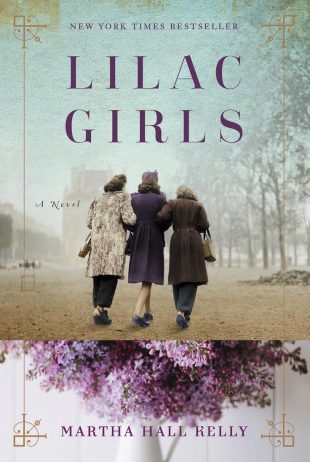 Lilac Girls by Martha Hall Kelly
Lilac Girls by Martha Hall Kelly Also by this author: Lost Roses

Published by Ballantine Books on April 5th 2016
Genres: Historical Fiction
Pages: 496
Amazon
Goodreads
Synopsis from Goodreads:
Inspired by the life of a real World War II heroine, this debut novel reveals a story of love, redemption, and secrets that were hidden for decades.
New York socialite Caroline Ferriday has her hands full with her post at the French consulate and a new love on the horizon. But Caroline’s world is forever changed when Hitler’s army invades Poland in September 1939—and then sets its sights on France.
An ocean away from Caroline, Kasia Kuzmerick, a Polish teenager, senses her carefree youth disappearing as she is drawn deeper into her role as courier for the underground resistance movement. In a tense atmosphere of watchful eyes and suspecting neighbors, one false move can have dire consequences.
For the ambitious young German doctor, Herta Oberheuser, an ad for a government medical position seems her ticket out of a desolate life. Once hired, though, she finds herself trapped in a male-dominated realm of Nazi secrets and power.
The lives of these three women are set on a collision course when the unthinkable happens and Kasia is sent to Ravensbrück, the notorious Nazi concentration camp for women. Their stories cross continents—from New York to Paris, Germany, and Poland—as Caroline and Kasia strive to bring justice to those whom history has forgotten.
My review:
Let me just start off by simply stating wow, what an incredibly moving read! I honestly don’t think a book has ever made me shed so many tears! If Lilac Girls doesn’t end up on all of the ‘Best of 2016’ book lists, there is just something wrong with this world.
Martha Hall Kelly’s debut novel Lilac Girls is a powerful and beautifully written exploration of how women in particular were impacted by the atrocities committed by the Nazis during WWII. The primary setting of the novel is the Nazi concentration camp Ravensbruck and its primary focus, the women — primarily Polish political prisoners — who were detained there, with special attention paid to those known as the “Ravensbruck Rabbits”, a group of prisoners who were experimented on against their will by Nazi doctors.
One of the most compelling qualities of Lilac Girls is its brilliant portrayal of the strength and courage of the Ravensbruck prisoners. Up against inhumane treatment and almost certain death, they demonstrated such resilience, determination, and even at times, defiance, that it just blew me away. I found the sisterhood they created for themselves within the camp very moving as well – the way they worked so hard to keep hope alive, no matter how hard the Nazis tried to dehumanize them and strip that hope away.
The strength that the women imprisoned at Ravensbruck displayed, especially considering what they were up against, just blew me away, as did Caroline Ferriday’s efforts to fight for those who had been forgotten once the war was over. Caroline, who had already devoted much of her time to fighting for French children who had been orphaned by the war, made it her mission to get the “Ravensbruck Rabbits” both the medical attention that they desperately needed after being experimented on by the Nazis, as well as the justice they deserved. As many tears of sadness and outrage as I cried watching those women suffer at the hands of the Nazis, I have to say I shed an equal number of tears of joy at what Caroline is able to make happen for them. Her determination to make sure they aren’t forgotten was so inspirational.
I also very much liked the three-pronged narrative approach. I thought it really added a lot of emotional depth to experience WWII firsthand from these three very different points of view: 1) Kasia, a Polish woman who is actually imprisoned and experimented on at Ravensbruck, 2) Herta, a female German doctor who actually performed experiments at the camp, and 3) Caroline, a non-European who is watching from afar but who has a personal stake in the war not just because of the orphans she is trying to take care of, but also because the man she loves, a French actor, was rounded up and imprisoned in a camp when the Nazis invaded France.
The perspective that was most troubling for me to read, yet added a lot to the story, was Herta’s. What we see through her eyes is that even though she is a German, as a woman, she is still deemed as inferior to the men, as someone who should just have babies to help with the “purification” of their race. Although she is training to be a doctor, the Nazis frown upon women being doctors and so the only job she can find is the one she ends up with at Ravensbruck. What she does to the “Ravensbruck Rabbits” is clearly unconscionable and unforgivable, but it was interesting to see how she ended up where she did and what her motivations were. I thought it humanized her a bit. Her actions and her own prejudices toward anyone who wasn’t German ultimately kept me from feeling any sympathy toward her, especially her belief that she was helping her people by experimenting on the “Rabbits”, but her point of view is unique in that it’s one we don’t often see in WWII stories – that of the perpetrators of the atrocities.
Not only is this a very compelling story, but for me anyway, Lilac Girls is very educational. I was not at all well educated about the Iron Curtain and what happened to Poland after WWII ended and I also had no idea who Caroline Ferriday was, so I was grateful to Martha Hall Kelly for her extensive research in planning this novel. I would also recommend to anyone who reads Lilac Girls to also read her notes at the end as well – they add a lot to the story itself and elaborate on what was fact versus what was fiction. That said, she did a marvelous job blending the factual with the fiction to create one of the best books I’ve read in a long time.
So, who would I recommend Lilac Girls to? Because of the way it shines a light on the way Poland and the “Ravensbruck Rabbits” were all but forgotten after the war ended, this is one of those important books that I would recommend to anyone and everyone. I would also highly recommend it as a must-read for anyone who loved Kristin Hannah’s The Nightingale or Anthony Doerr’s All the Light We Cannot See. If you were moved by those stories, this one will not disappoint.


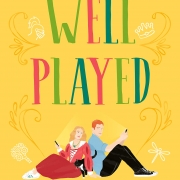

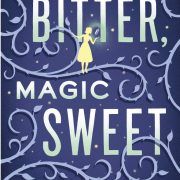
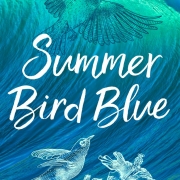
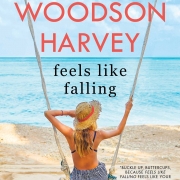
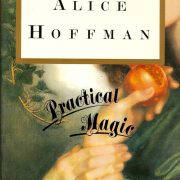


What a lovely review, Suzanne. You captured the essence of Lilac Girls so beautifully!
Hi Martha, thanks so much for visiting my blog and for your kind words about my review. Wishing you much success with Lilac Girls!